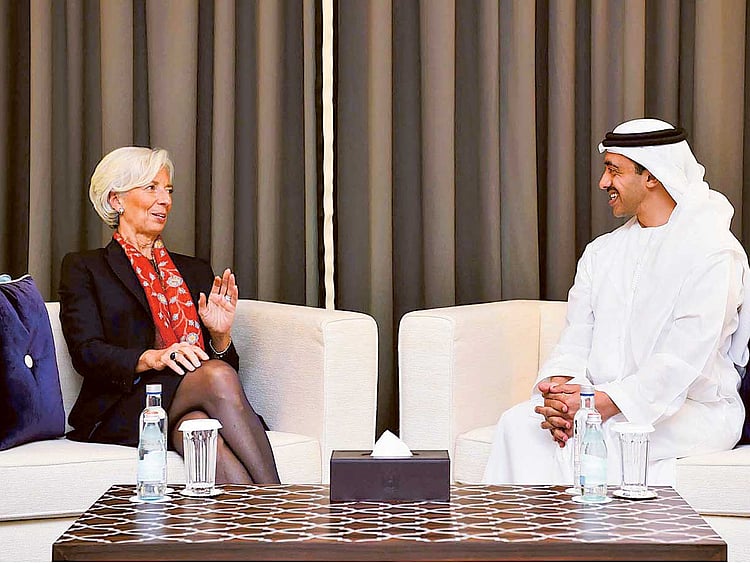IMF: GCC countries need to ‘reengineer tax systems’
VAT and income tax suggested as ways of strengthening fiscal frameworks

Abu Dhabi: Countries in the GCC region need to strengthen their fiscal frameworks and “reengineer their tax systems” in order to raise their revenues amid challenges from the lower oil price environment, the head of the International Monetary Fund (IMF) said on Monday in Abu Dhabi.
Christine Lagarde, managing director of the IMF, said that with oil prices expected to remain low for an extended period, GCC countries will have to boost their efforts in implementing taxes – be it Value Added Tax (VAT) or even income taxes.
“It is also worth remembering that GCC economies have made large fiscal adjustments in the past, and I am confident that they can do it again.
“At the same time, these economies need to strengthen their fiscal frameworks and reengineer their tax systems - by reducing their heavy reliance on oil revenues and boosting non-hydrocarbon sources of revenues,” Lagarde said.
Speaking at the Arab Fiscal Forum in Abu Dhabi, she added that such adjustments will help bolster growth and job creation and help maintain debt sustainability.
“How can GCC countries achieve this? Start by putting in place a simple system that initially focuses on VAT - ideally a harmonised regional VAT. Even at a low single-digit rate, such a tax could raise up to two per cent of GDP,” she said.
The IMF managing director added, “Add to this a greater emphasis on corporate income taxes, as well as property and excise taxes. And continue to invest in building tax administration capacity that could eventually allow for the introduction of personal income taxes.”
The UAE had earlier announced that it would implement VAT by 2018, with the framework currently under discussion with other GCC countries
A spokesman from the Ministry of Finance had also earlier said that the UAE is expected to generate Dh10 billion to Dh12 billion a year when it introduces VAT.
Lagarde cited progress in Kuwait where the IMF has assisted in the study and design of the implementation of taxes such as VAT and business profit tax.
“This work has contributed to a national dialogue on why and how Kuwait should diversify its revenue sources. Proponents of reform tax argue – rightly – that this would allow the country to better manage the fiscal risks associated with volatile oil prices,” she said.
In her speech, Lagarde also touched on oil importers in the Mena region, saying that they generate tax revenues of about 13 per cent of non-oil gross domestic product. In other emerging and developing economies, however, this figure stands at 17 per cent.
“Clearly, there is scope for revenue increases, again, by broadening the tax base, making personal income tax more progressive, and eliminating privileged corporate income tax regimes,” she said.
Sign up for the Daily Briefing
Get the latest news and updates straight to your inbox
Network Links
GN StoreDownload our app
© Al Nisr Publishing LLC 2025. All rights reserved.